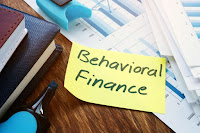
Investment can be defined as the current commitment of dollars for a period of time in order to derive future payments that will compensate the investor for (i) the time the funds are committed, (ii) the expected rate of inflation during this time period, and (iii) the uncertainty of the future payments. The “investor” can be an individual, a government, a pension fund, or a corporation. Similarly, this definition includes all types of investments, including investments by corporations in plant and equipment and investments by individuals in stocks, bonds, commodities, or real estate. This text emphasizes investments by individual investors. In all cases, the investor is trading a known dollar amount today for some expected future stream of payments that will be greater than the current dollar amount today.
Hence, the question is why people invest and what they want from their investments. They invest to earn a return from savings due to their deferred consumption. They want a rate of return that compensates them for the time period of the investment, the expected rate of inflation, and the uncertainty of the future cash flows. This return, the investor’s required rate of return, is discussed throughout this book. A central question of this book is how investors select investments that will give them their required rates of return.
.png)
.png)
.png)
.png)
.png)

.png)
.png)

.png)
